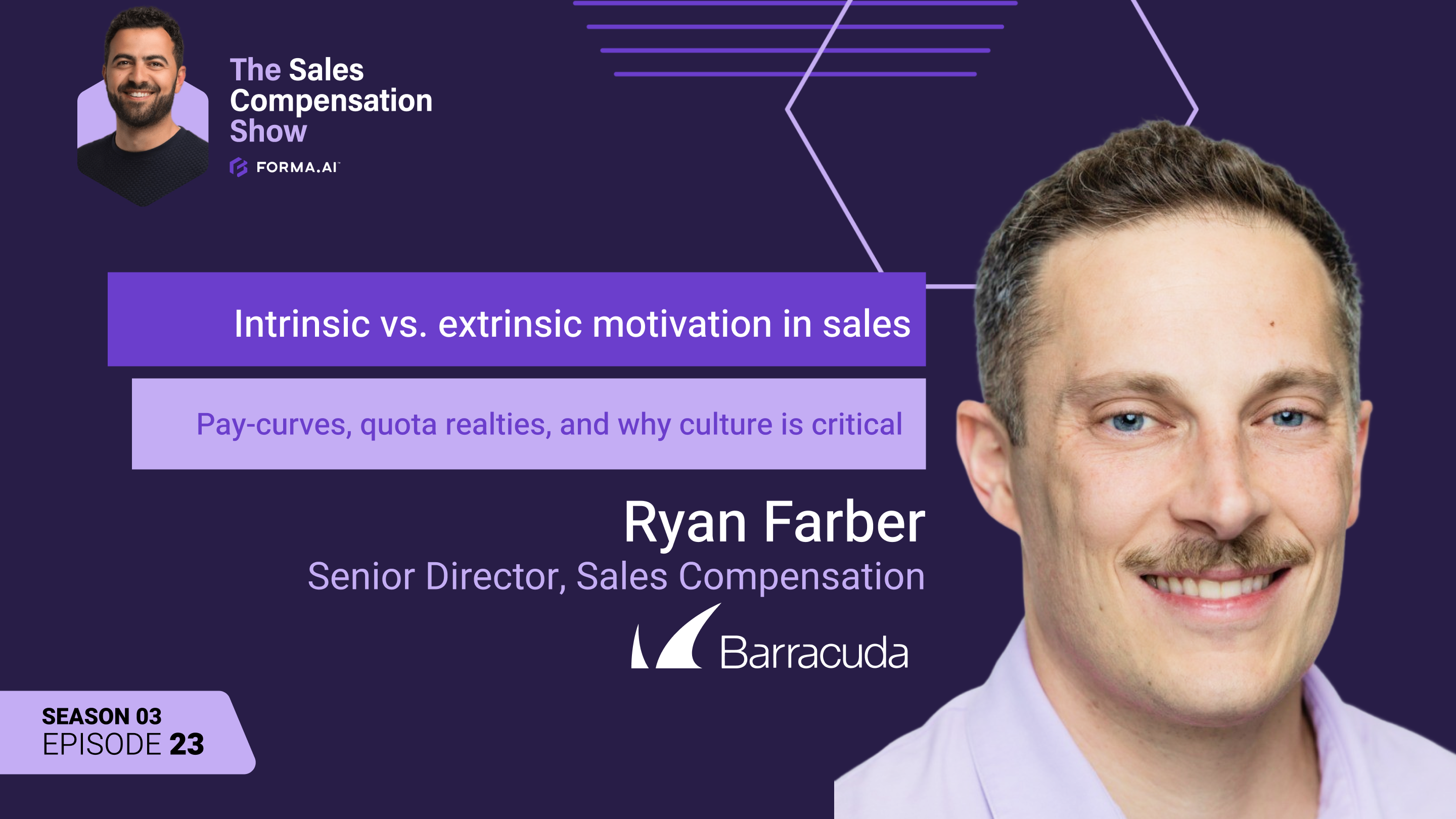.avif)
The Hot Hand Phenomenon: Improving Sales Performance
.avif)
The Hot Hand Phenomenon: Improving Sales Performance
Nick Lee, Ph.D., explores a wide range of cutting-edge studies that impact sales compensation and shares insights from his study on the hot hand phenomenon in sales on The Sales Compensation Show.
.avif)
The Hot Hand Phenomenon: Improving Sales Performance
Nick Lee, Ph.D., explores a wide range of cutting-edge studies that impact sales compensation and shares insights from his study on the hot hand phenomenon in sales on The Sales Compensation Show.
.avif)
The Hot Hand Phenomenon: Improving Sales Performance
Nick Lee, Ph.D., explores a wide range of cutting-edge studies that impact sales compensation and shares insights from his study on the hot hand phenomenon in sales on The Sales Compensation Show.
The Hot Hand Phenomenon: Improving Sales Performance
Nick Lee, Ph.D., explores a wide range of cutting-edge studies that impact sales compensation and shares insights from his study on the hot hand phenomenon in sales on The Sales Compensation Show.
Nick Lee, Ph.D., is a Professor at Warwick Business School, where he teaches marketing, sales, and research methods to MBA, executive, and doctoral students. He is also a strategic advisor at Datamind London and an honorary fellow at the Association of Professional Sales.
In a conversation with Justin Lane, Nick explores a wide range of cutting-edge studies that impact sales compensation and incentive planning. He also shares insights from his study on the phenomenon of ‘hot hands’ in selling and how we can use the findings to improve team performance by up to eighteen percent.
Listen to this episode of The Sales Compensation Show to learn:
- How the hot hand phenomenon can improve sales performance
- The role of last-place aversion in motivating your sales team
- Extrinsic motivation and how it can improve sales performance
Three key takeaways:
#1: Increase sales with the ‘hot hands’ phenomenon
In a sales environment, “hot hands” refers to the idea that a salesperson’s success can be influenced by a streak of successful sales. This suggests that when a salesperson makes a few sales in a row, their confidence and motivation may increase, leading them to continue to find success.
But do ‘hot hands’ exist in a sales environment? Most people would say no. They would argue that we’re biased to see patterns in performance or any kind of data sequence. And that any short-run performance increase is a coincidence and not influenced by a hot hand.
Nick thinks differently. He told us not only do hot hands exist, but that they could also increase sales by up to eighteen percent.
He experimented to test if the hot hand phenomenon in sales was true. His goal was to prove that hot hands do exist and that it was possible to induce a hot-selling state that increases sales.
Nick tested his hypothesis by conducting a three-month study at a call center with 100+ sales reps and two office locations. One office was purpose-built for call centers and allowed for social interactions. The other was a traditional office space where people primarily worked in isolation with limited social interaction. Analyzing the data revealed that social interactions in a call center environment had a positive effect on workers’ productivity by breaking negative momentum, especially cold streaks, rather than hot streaks. He then simulated the same call center, but if they had incorporated his findings, and concluded they would have increased their sales by 18% throughout those three months.
Nick walks through the experiment in full-depth at 5:50 in the podcast.
#2: Salespeople are motivated by last-place aversion
Last-place aversion in sales refers to the tendency of salespeople to avoid being in last place among their peers or competitors. This phenomenon occurs because salespeople often use their position in a ranking or leaderboard as a source of motivation to work harder and achieve better results.
The fear of being in last-place can drive salespeople to push themselves harder, set higher goals, and strive for excellence. Often more than the desire to be in first place can. In this way, last place aversion can be a powerful motivator for salespeople, leading to increased effort, productivity, and sales.
"Social comparisons are very important motivators. People want to improve their performance so they can avoid last place." - Nick Lee, Warwick Business School
However, it is important to note that last-place aversion can also have negative consequences, such as increased stress, burnout, and decreased job satisfaction. Therefore, it is essential to balance the benefits of competition with the need to maintain a healthy and supportive work environment for salespeople.
#3: Extrinsic motivation can improve sales performance
Extrinsic motivation is a type of motivation in which an individual is driven by external rewards, such as money, recognition, or status. In sales, extrinsic motivators are often used to incentivize salespeople to achieve better results.
For example, sales teams may be offered bonuses, commissions, or other financial rewards for meeting or exceeding their sales targets. Additionally, salespeople may receive awards or promotions based on their performance. These external rewards can be powerful motivators for salespeople, as they provide tangible benefits and recognition for their hard work.
Some sales compensation professionals question whether extrinsic motivation actually works to motivate salespeople. Nick believes it does: “Extrinsic motivation is used by every company in the world, of course, it works. If it didn’t work to improve performance, we wouldn’t be using it and someone would have made a lot of money from a different idea by now.“
The Sales Compensation Show is brought to you by Forma.ai, the world’s first Sales Comp Ops solution. Find us by searching sales compensation on Spotify, Apple Podcasts, Google Podcasts, and YouTube.
Are you interested in learning more? Have a conversation with one of our sales comp experts here.




.png)



